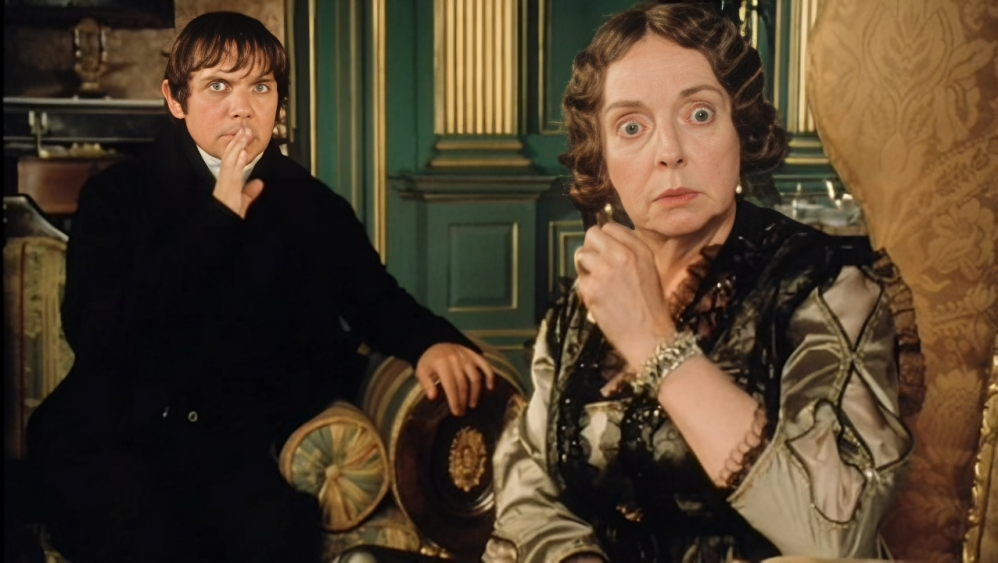SLOUGH, ENGLAND:
As a woman, it is not unusual for me to invite other women into my home for mindless chatter. When our new neighbour moved in, an invitation was swiftly extended for a get-to-know session amid coffee and cookies. When my daughter made a new friend, the mother was invited for tea and samosas.
Neighbour Friend (NF) is a delightful woman, and we spent a happy hour discussing neighbourly matters, such as the appropriate punishment for when someone steals your very own personal parking spot right outside your gate. Mum Friend (MF) is similarly delightful, but also in ownership of a large private driveway, and thus untroubled by evil parkers. Therefore, we were forced to turn our attention to other topical matters, such as the deplorable state of teenagers today.
Finding husbands, the Jane Austen way
Because both of these ladies, like me, are desi, the conversation inevitably turned to their husbands – or more specifically, how they had acquired them. NF revealed that she had reached the ripe old age of 23 when her mother’s façade started to crumble.
“My mother told me I had to get married within the year, because I was already over the hill,” recalled NF. “It’s not something I wanted to do, but didn’t really have a choice. It was either that or listen to my mother cry until I got married.”
Luckily for NF, she had personally already handpicked a groom by then, so she did not have to tolerate the crying for too long. By contrast, Mum Friend (MF) waited until she was an old age pensioner (age 25) before pushing her mother on the verge of a stroke.
“It was full-on emotional blackmail, and honestly, I think I got married just to stop the crying and get out of the house,” said MF.
Both ladies are now suitably happy in their respective marriages, but their route into matrimony is not unlike that explored in a Jane Austen novel. Mrs Bennet from Pride and Prejudice is saddled with an irritating life Mr Bennet whose sole purpose in life is to roll his eyes at her and five daughters. Her dual mission throughout the book is to ignore Mr Bennet and to pawn the daughters off to suitable husbands. With both NF’s and MF’s mothers faithfully following Mrs Bennet’s parenting hacks and philosophy (“It is a truth universally acknowledged that a single man in possession of a good fortune must be in want of a wife”) listening to my guests’ relationship origin stories drove home once again just how timeless Jane Austen’s sorcery really is.
The enduring love of Mr Darcy
Any discussion related to Austen’s sorcery invariably leads to Mr Darcy, so let’s get him out of the way first. Mr Darcy is the ultimate Regency pin-up boy, although he would die of a heart attack to hear himself described so. “You must allow me to tell you how ardently I admire and love you,” he gravely informs Elizabeth Bennet, before, in true Pakistani red flag style, embarking on a suicide mission where he insults her entire family by presenting a detailed analysis of their social sins. Darcy buries the red flag, however, and turns his fortunes around by forcing Wickham to marry Lydia, being polite to Elizabeth’s aunt and uncle and renewing his proposal with the added caveat “But one word from you will silence me on this subject forever.” A man who doesn’t wear down a woman by repeating love-bombing is a keeper – although even Darcy, inexplicably, has his haters.
“What an idiot,” says Sana, a doctor who is also a voracious reader with assorted controversial opinions. “Why do women continue to adore men who are socially awkward for no reason? What does he have to scowl about? He has money, he has an education! He’s a typical rich man who can get away with anything.”
Whichever colour flag he brandishes – red or green – Mr Darcy and his scowl are still relevant enough more than 200 years down the line. But when viewed through a Pakistani lens, Mr Darcy is not the true reason for Austen’s immortality.
Enforced socialising, unwanted guests: life’s true horrors
To appreciate the true beauty and relevance of Austen, you need to have dabbled in ‘adulting’ in some form or other. One disgruntled reviewer noted that Pride and Prejudice is “just a bunch of people going to each other’s houses”, but is that not one of the true horrors of adulting in our desi social strata? To endure forced socialising? Miss Bingley struggles to conceal her disdain when a cordial invitation to Jane Bennet elongates into an extended sleepover because Jane thoughtlessly caught a cold en route, and culminates in a rash promise to the rest of the Bennets to host a ball. Who can blame her for the headache she invariably incurs at having to organise yet another tedious social event?
“I hate Eid,” confesses Ruby, a young mum in Tooting whose hatred of Eid has a lot to do with an assembly line of kachoris she has to throw together for about a billion guests on the day. “And I hate guests,” she adds.
A hatred of guests – shared by Miss Bingley – is almost universal, although not everyone is as brave as Ruby is when admitting it. Ruby’s woes, however, extend to more than just hosting; she despises visiting other people almost as much as she loathes being forced to make kachori when they turn up on Eid.
“Every time I visit Karachi, we have to go on these ‘zaroori’ visits to my inlaws’ relatives,” she almost spits out.
Ruby has a kindred spirit in Austen’s Charlotte Collins, who is spared menial kitchen tasks, but not clockwork visits to Lady Catherine de Bourgh, her de facto mother-in-law. Lady Catherine regales her hostage guests with unwanted advice and tales of her unsurpassed skill at everything. “If I had ever learnt,” she remarks scornfully at hearing Elizabeth playing piano, “I would have been a true proficient.”
We may not all be lucky enough to have a Mr Darcy in our lives, but we all have a Lady Catherine who forces us to visit them and endure unwanted conversation. And on that note, I must extend a heartfelt apology to NF and MF for boring them senseless with chatter and holding them hostage with food and drink.
Have something to add to the story? Share it in the comments below.







